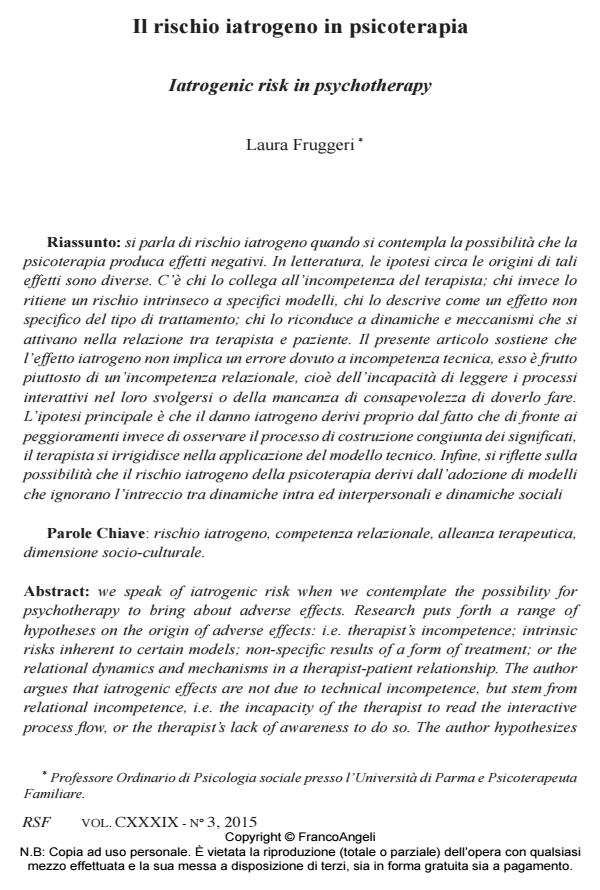Latrogenic risk in psychotherapy
Journal title RIVISTA SPERIMENTALE DI FRENIATRIA
Author/s Laura Fruggeri
Publishing Year 2015 Issue 2015/3
Language Italian Pages 12 P. 105-116 File size 2186 KB
DOI 10.3280/RSF2015-003007
DOI is like a bar code for intellectual property: to have more infomation
click here
Below, you can see the article first page
If you want to buy this article in PDF format, you can do it, following the instructions to buy download credits

FrancoAngeli is member of Publishers International Linking Association, Inc (PILA), a not-for-profit association which run the CrossRef service enabling links to and from online scholarly content.
We speak of iatrogenic risk when we contemplate the possibility for psychotherapy to bring about adverse effects. Research puts forth a range of hypotheses on the origin of adverse effects: i.e. therapist’s incompetence; intrinsic risks inherent to certain models; non-specific results of a form of treatment; or the relational dynamics and mechanisms in a therapist-patient relationship. The author argues that iatrogenic effects are not due to technical incompetence, but stem from relational incompetence, i.e. the incapacity of the therapist to read the interactive process flow, or the therapist’s lack of awareness to do so. The author hypothesizes that iatrogenic harm appears when the therapist, faced with a deteriorating situation, instead of observing the process of co-construction of meanings, becomes inflexible and implements rigidly the technical model. Finally, the author suggests that iatrogenic risks in psychotherapy stem from the adoption of models that disregard the intertwining intrapersonal, interpersonal and social dynamics.
Keywords: Iatrogenic risk, relational competence, therapeutic alliance, sociocultural dimension.
Laura Fruggeri, Il rischio iatrogeno in psicoterapia in "RIVISTA SPERIMENTALE DI FRENIATRIA" 3/2015, pp 105-116, DOI: 10.3280/RSF2015-003007